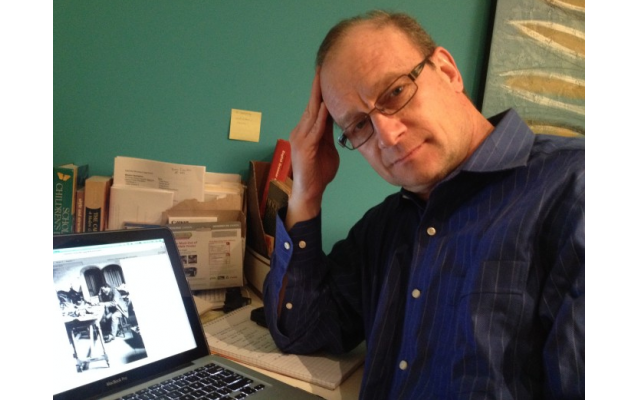Acknowledging the Future While Planting in the Present
The words of a Chinese philosopher and a Talumudic midrash apply to the fruit trees in Dave’s yard.
Dave Schechter is a veteran journalist whose career includes writing and producing reports from Israel and elsewhere in the Middle East.
Signing a will is an acknowledgement of your life’s finality.
Planting trees recognizes that life will continue beyond your own.
Existential terrors that lurk in the subconscious come to the fore as you put pen to paper on a will and advance directive. An unemotional demeanor helps to tamp down thoughts swirling within.
You know this needs to be done. You just don’t want to do it.
It may be a factor of age, but in recent months I have noticed more posts in the Facebook groups I follow about the deaths of people with whom I attended high school or college, or with whom I worked at some point in my career. Some of them come easily to mind. Others I do not remember or have only a scant recollection.
Likewise, I read with increasing frequency about the death of athletes whose exploits I once followed and public figures whom I have encountered or interviewed.
Leaving the lawyer’s office after signing those papers, I thought: Okay, I’ve taken care of this. I can stop thinking about this, at least for a while.
Back at home, my outdoor diversions now include tending to two recently planted trees.
A friend brought over a plum tree in memory of my wife’s father, whose funeral I wrote about in this space a few weeks ago. After accounting for the tree’s need for several hours of direct sunlight daily, we chose a spot in the backyard, several feet from the garden box.
On the gray, wet, cold days that we experience this time of year, that sapling looks forlorn, standing unprotected against whatever nature brings. In sunshine, it looks sturdier and more able to withstand the elements.
When we moved into this house, we removed a number of trees, several of which were leaning precariously in the direction of the roof. Depressions remain in the front yard where trees once stood. We chose one of those places to plant a persimmon tree that my wife brought home from a farm stand plant sale.
We already have a fig tree that has yet to yield figs, probably because I planted it where it does not receive sufficient sunlight. We must wait a few years to see if our latest additions produce plums and persimmons.
Given life’s vagaries I cannot say with certainty that we will be the ones to pick that fruit. If someone else is living here, I hope that they appreciate that these trees were planted.
In that regard, we are following a portion of the advice attributed to the Chinese philosopher Guan Zhong, who lived from 720-645 BCE (pre-dating Confucius, to whom this sentiment is often credited): “The best investment for one year is to grow grains; the best investment for ten years is to grow trees; the best investment for a lifetime is to educate people.”
Until writing this column, I was unfamiliar with the story of Honi the Circle Maker, based on a midrash from the Talmud. Walking along a road, Honi asked a man he saw planting a carob tree: “How long will it take to bear fruit?” The man replied: “Seventy years.” Honi then asked: “Do you think you will live another seventy years and eat the fruit of this tree?” The man answered: “Perhaps not. However, when I was born into this world, I found many carob trees planted by my father and grandfather. Just as they planted trees for me, I am planting trees for my children and grandchildren so they will be able to eat the fruit of these trees.”
As I looked at my signature on the aforementioned documents, one thing that came to mind was a passage in the “Gates of Prayer” siddur used by the Reform movement. I discovered these words years ago, while thumbing through the prayer book, instead of paying attention to whatever service was in progress. Their existential nature appealed to me, and I looked them up more than once.
That text reads: “Mortality is the tax we pay for the privilege of love, thought, creative work — the toll on the bridge of being from which clods of earth and snow-peaked mountain summits are exempt. Just because we are humans, we are prisoners of the years. Yet that very prison is the room of discipline in which we, driven by the urgency of time, create.




comments